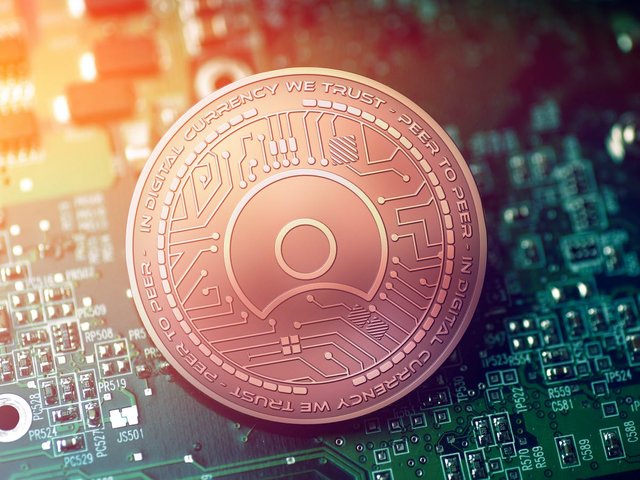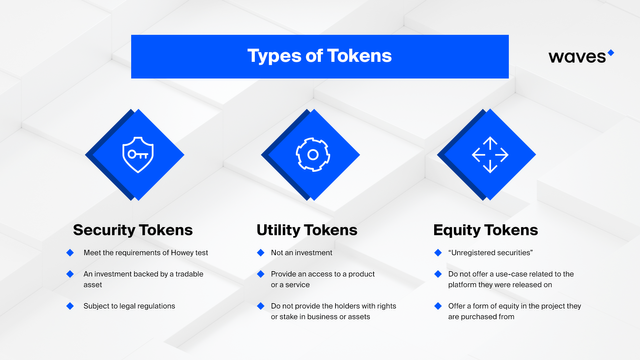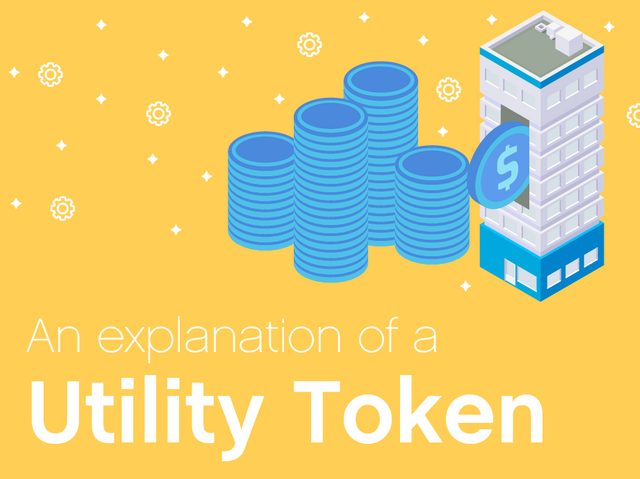Steemit Crypto Academy Season 2, Week 2 - Homework Post for @Pelon53 | Three Main Types Of Tokens [ Security, Utility and Equity ]
hello everyone's back again with me @sitimei at Steemit Crypto Academy Season 2 Week 2.
On this occasion I will do the homework given by Professor @pelon53 , regarding about the Three main types of tokens - Security, Utility and Equity.
So before I discuss the main topic at this time, I will discuss the basics first, namely Tokens. We cannot deny that every time we mention the word "Token" it will refer to Blockchain and Cryptocurrency. But do you know what a token is ??? and where did the token come from ??? , so that my friends know, let's study together.

Source : The Convertation
What is a Token
Token is a digital asset issued by a private project, tokens can also be used as a means of payment so that their owners can enjoy the services provided by the project. We can interpret that tokens can replace the function of currencies that are in a particular community, but they have no legal support, which is that they cannot be used in general, because the currencies that are used in general today have legal support. The publishing house is a private company and will fulfill its publishing needs as the private company that makes the project.
The token is created in a decentralized application (dApps) which is hosted by the blockchain, which functions on smart contracts, such as Ethereum. They fund the smart contract with the blockchain's native coins, so that the user receives an allocated number of tokens, which in turn allows the user to interact with the dApp.
In other words, the function of tokens is as a medium of exchange used in certain communities to meet the needs presented. A token that represents something in a particular ecosystem. and it can be a work of art, books, articles and so on.
Difference between token and cryptocurrency
Here are some of the differences between tokens and coins in cryptocurrency :
Token
- Tokens do not own their own blockchain.
- Tokens are made not only for payment tools, but are also used for certain features that have been created by the creator.
- Tokens are generated by processing via decentralized applications (dApps) hosted by the blockchain that function on smart contracts, such as Ethereum.
Coin
- Coins have their own blockchain.
- The coin was created with an important purpose and function, namely payment and investment.
- A coin is generated by means of mining, performs a certain process in the coin blockchain and if successful will generate coins in return.
Three main types of tokens - Security, Utility and Equity.
Security Tokens
Security tokens have the function of providing security to buyers which they also have shares in the company, so that token holders have the right to ownership rights. Because these tokens are already backed by tradable assets, they are subject to regulatory and legal institutions, such as the SEC in the US. Currently all ICOs are trying hard to ensure the tokens they issue are no longer classified as securities. In order for a token created to be classified as security, it must meet Howey's test requirements.
Utility Tokens
This Utility Token is the most indisputable type of token. The Utility Token itself represents access to a product or service of a company, it is not linked to a tradable asset. Utility Tokens can be compared to coupons or vouchers of the like. Points in a loyalty or discount program are a good example in the case of using Utility Tokens.
Equity Tokens
Equity Tokens is a form of combination between Token Utilas and Security Token, the regulations on Token Equity are not clear. They are sometimes referred to as 'unlisted securities', because they only offer a form of equity into the project in which they are purchased. Obviously this type of equity token does require a complex legal framework to create a trust.
Security Token is the same as an Investment Contract, in which in essence a security token is an investment contract that represents legal ownership of a physical asset or digital asset. Ownership must be verified in the blockchain.
After verifying ownership, the security token holder can:
- Buy and sell their tokens to get other assets
- Can use it as collateral to make a loan
- Can store in different wallets.
Therefore, the real value contained in security tokens is how they can completely redefine the meaning of ownership. They can democratize their assets and distribute them among people all over the world. A very rough example, think twice about owning a gold coin, now to get a gold coin it requires a budget from everyone, maybe now it takes hundreds more people for us to have that gold coin shard.
Utility Tokens
Utility tokens are non-specific tokens created for crowdfunding purposes (such as KickStarter, GoFundMe). This means the buyer of the utility token pays the issuer of the token, which can be used to upgrade the product and then used by the buyer.
Why do so many people love this token? Speculation and fear of loss are the reasons many people buy and market utility tokens. While you cannot exchange in-service tokens for goods / services, owners can buy and sell utility tokens by trading them on crypto exchanges (eg Binance or Indodax).
The price or value set by utility tokens stems from speculation, and price fluctuations continue as long as a third party is willing to purchase a service token at a higher price. Thus, utility tokens have the potential to create and maintain real value.
The various tokens currently in circulation fall under the utility token category, including: Projekt HARA (HART), Ripple (XRP), Storiqa (STQ), Cardano (ADA), Vexanium (VEX), Storiqa (STQ), etc.
Equity Tokens
These are the shares offered by each startup where individual investors or companies take partial ownership of the blockchain and voting rights on the blockchain. These tokens offer investors some kind of security, as they are involved in the growth of the blockchain network. Rewards are paid based on market performance as well as the interchangeability of these tokens.
Stock tokens are poised to become a critical part of future Initial Coin Offerings (ICOs) as they offer startups the opportunity to enter otherwise difficult financial markets. However, the problem surrounding the issuance of stock tokens remains the agreement that has yet to be concluded with a new Delaware bill that allows companies to store the names of their shareholders on blockchains and trade stocks. based on blockchains.
That is my explanation regarding Security Tokens, Equity Tokens, and Utility Tokens, I hope this is useful for readers, if it is far from perfect and complete in writing my article, I apologize.
That is all and thank you
Kind regards
@sitimei





Gracias por participar en Steemit Crypto Academy.
No explicas los ejemplos. Y se crea confusión en los conceptos.
Faltó conclusiones y justificar el texto.
Calificación: 4.5